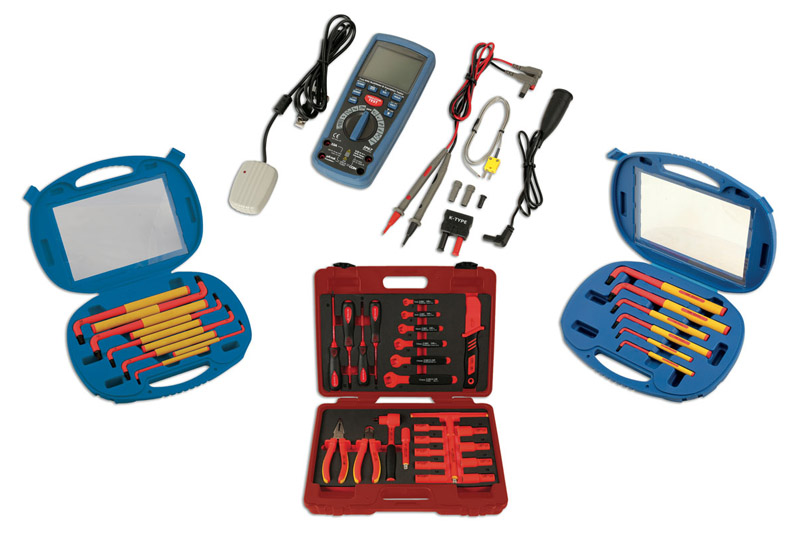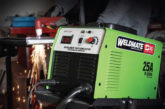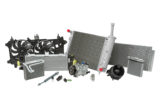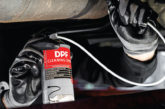
There are a few essential items of equipment and some special tools that are needed, but to equip your workshop for EV work is probably much less expensive than you think. Let’s start with personal protective equipment (PPE).
In addition to the normal automotive-related PPE, the following are also recommended for work on high-voltage systems:
• overalls with non-conductive fasteners
• electrical protection gloves
• goggles/visor

Basic additional workshop equipment is needed. It is important, for example, to be able to keep a high voltage vehicle fenced off and clearly marked to prevent untrained people touching it. All you need is some simple plastic barriers or posts and chains, together with suitable signs to warn others. This is particularly important if the vehicle is partly dismantled. One simple device that is essential is a padlock so that after de-energising the vehicle, it can be locked in that state to prevent accidental reconnection.

Some high-voltage insulated tools are needed but again not as much as you think, particularly when you are first starting out. These special tools are designed to protect technicians from the high-voltage systems in electric vehicles. They should comply with EN 60900. Most are tested at up to 10,000 V for 10 seconds. An important safety feature of the EV tool range is the two-step colour-code system. If any of the red/orange-coloured outer insulation material is missing, a bright yellow interior is exposed, clearly indicating to the technician that the tool is no longer safe for use.

Tools and equipment can be bought individually or as a full set. The items shown as Fig.3 comprise a full complement of insulated tools, including ratchets, sockets, screwdrivers, spanners, T-wrenches, pliers and an insulated torque wrench. Latex insulation gloves, protective outer gloves and a secure roller cabinet can also be provided as part of this kit.

It is great to have the full kit but it is not essential to buy everything all at once. You can build up the range bit by bit as long as you have the essential items. For example, you probably have a good multimeter, but check that it is at least CAT III which is a rating to say it is safe for high voltages. An insulation tester will be needed. You probably already have a good scanner – EV systems produce fault codes and live data just like everything else on the vehicle.
Are high voltage vehicle dangerous to work on? Yes, if you don’t have the right equipment and don’t know what you are doing! No, they are not dangerous if you have the correct tools, are suitable trained and qualified. Next month we will look at the training and qualifications you need to work safely on EVs.









